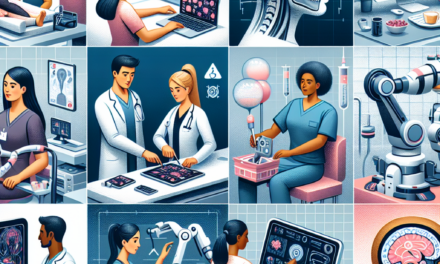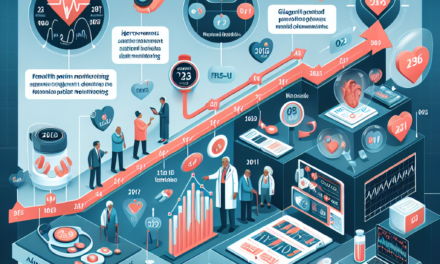India Aims to Sequence 10 Million Genomes: A Leap into the Future of Genomics
In recent years, the field of genomics has witnessed unprecedented advancements, with countries around the world investing heavily in genome sequencing initiatives. Among these nations, India stands out with its ambitious goal of sequencing 10 million genomes. This initiative is not merely a scientific endeavor; it has the potential to revolutionize healthcare, enhance agricultural practices, and contribute to the global understanding of genetics. In this article, we will explore the various dimensions of India’s genome sequencing initiative, including its objectives, methodologies, implications for healthcare, ethical considerations, and the role of technology in achieving this goal.
1. Understanding the Objectives of Sequencing 10 Million Genomes
The primary objective of sequencing 10 million genomes in India is to create a comprehensive genomic database that can be utilized for various applications. This initiative aims to:
- Enhance Personalized Medicine: By understanding the genetic makeup of individuals, healthcare providers can tailor treatments to suit specific genetic profiles, leading to more effective and targeted therapies.
- Advance Research in Rare Diseases: A vast genomic database can help identify genetic mutations associated with rare diseases, facilitating research and potential cures.
- Improve Public Health Strategies: Genomic data can aid in tracking disease outbreaks, understanding population genetics, and developing preventive measures.
- Boost Agricultural Productivity: Sequencing plant and animal genomes can lead to the development of more resilient crops and livestock, enhancing food security.
- Contribute to Global Genomic Research: By adding to the global genomic database, India can play a significant role in international research collaborations.
These objectives reflect a multifaceted approach to genomics, emphasizing not only healthcare but also agriculture and public health. The initiative is expected to foster innovation and collaboration across various sectors, ultimately benefiting society as a whole.
2. Methodologies for Genome Sequencing
The methodologies employed in genome sequencing are critical to the success of India’s ambitious goal. The process involves several key steps:
- Sample Collection: The first step involves collecting biological samples from diverse populations across India. This includes blood samples, saliva, and tissue samples, ensuring a representative genetic diversity.
- DNA Extraction: Once samples are collected, DNA is extracted using standardized protocols to ensure high-quality genomic material for sequencing.
- Sequencing Technologies: Various sequencing technologies, such as Next-Generation Sequencing (NGS) and Whole Genome Sequencing (WGS), will be employed. NGS allows for rapid sequencing of large amounts of DNA, making it suitable for large-scale projects.
- Data Analysis: The raw sequencing data will undergo extensive bioinformatics analysis to interpret genetic variations and identify significant patterns.
- Data Storage and Sharing: Given the vast amount of data generated, robust data storage solutions and sharing protocols will be essential for collaboration among researchers and institutions.
Each of these steps requires careful planning and execution. The choice of technologies and methodologies will significantly impact the quality and usability of the genomic data generated. Moreover, the integration of advanced bioinformatics tools will be crucial for analyzing the complex data sets produced during sequencing.
3. Implications for Healthcare: A New Era of Personalized Medicine
The implications of sequencing 10 million genomes for healthcare in India are profound. Personalized medicine, which tailors medical treatment to the individual characteristics of each patient, is one of the most promising outcomes of this initiative.
With a comprehensive genomic database, healthcare providers can:
- Identify Genetic Predispositions: By analyzing an individual’s genome, doctors can identify genetic predispositions to certain diseases, allowing for early intervention and preventive measures.
- Optimize Drug Therapies: Pharmacogenomics, the study of how genes affect a person’s response to drugs, can lead to more effective medication regimens tailored to an individual’s genetic makeup.
- Facilitate Targeted Treatments: Cancer treatments, for example, can be tailored based on the genetic mutations present in a patient’s tumor, leading to better outcomes.
- Enhance Disease Management: Chronic diseases such as diabetes and cardiovascular conditions can be managed more effectively through personalized treatment plans based on genetic insights.
- Promote Preventive Healthcare: Understanding genetic risks can encourage individuals to adopt healthier lifestyles and undergo regular screenings, ultimately reducing the burden of disease.
Moreover, the initiative can significantly contribute to research on rare diseases, which often lack sufficient data for effective treatment. By identifying genetic mutations associated with these conditions, researchers can develop targeted therapies and improve patient outcomes.
4. Ethical Considerations in Genome Sequencing
While the potential benefits of sequencing 10 million genomes are immense, ethical considerations must be addressed to ensure responsible use of genetic data. Key ethical issues include:
- Informed Consent: Participants must be fully informed about the purpose of the study, how their data will be used, and any potential risks involved. Obtaining informed consent is crucial for ethical research practices.
- Data Privacy and Security: The sensitive nature of genetic data necessitates robust measures to protect participants’ privacy. Data breaches could lead to misuse of genetic information, impacting individuals’ lives.
- Equity in Access: Ensuring that the benefits of genomic research are accessible to all segments of society is essential. There is a risk that advancements may disproportionately benefit certain populations while neglecting others.
- Potential for Discrimination: Genetic information could be misused by employers or insurance companies, leading to discrimination based on an individual’s genetic predispositions.
- Long-term Implications: The long-term implications of storing and using genetic data must be carefully considered, including how it may affect future generations.
Addressing these ethical considerations requires collaboration among policymakers, researchers, and ethicists. Establishing clear guidelines and regulations will be essential to navigate the complex landscape of genomic research responsibly.
5. The Role of Technology in Achieving the Goal
Technology plays a pivotal role in the success of India’s genome sequencing initiative. Several technological advancements are instrumental in facilitating large-scale genomic research:
- Next-Generation Sequencing (NGS): NGS technologies have revolutionized genome sequencing by allowing rapid and cost-effective sequencing of large genomes. This technology will be central to the initiative.
- Bioinformatics Tools: Advanced bioinformatics tools are essential for analyzing the vast amounts of data generated during sequencing. These tools help identify genetic variations and interpret their significance.
- Cloud Computing: The use of cloud computing enables efficient data storage and sharing among researchers, facilitating collaboration and accelerating research progress.
- Artificial Intelligence (AI): AI algorithms can enhance data analysis by identifying patterns and correlations that may not be apparent through traditional methods.
- Mobile Health Technologies: Mobile health applications can facilitate participant engagement, allowing individuals to track their health and genetic information conveniently.
The integration of these technologies will not only streamline the sequencing process but also enhance the quality and applicability of the genomic data generated. As technology continues to evolve, it will further empower researchers and healthcare providers to leverage genomic insights for improved health outcomes.
Conclusion: A Vision for the Future
India’s ambitious goal of sequencing 10 million genomes represents a significant leap forward in the field of genomics. By enhancing personalized medicine, advancing research in rare diseases, and improving public health strategies, this initiative has the potential to transform healthcare in India and beyond. However, it is essential to navigate the ethical considerations and ensure that the benefits of genomic research are equitably distributed across society.
The successful implementation of this initiative will rely on robust methodologies, advanced technologies, and a commitment to ethical practices. As India embarks on this journey, it not only aims to contribute to global genomic research but also to set a precedent for responsible and impactful genomic initiatives worldwide. The future of healthcare, agriculture, and public health in India may very well be shaped by the insights gained from these 10 million genomes.





